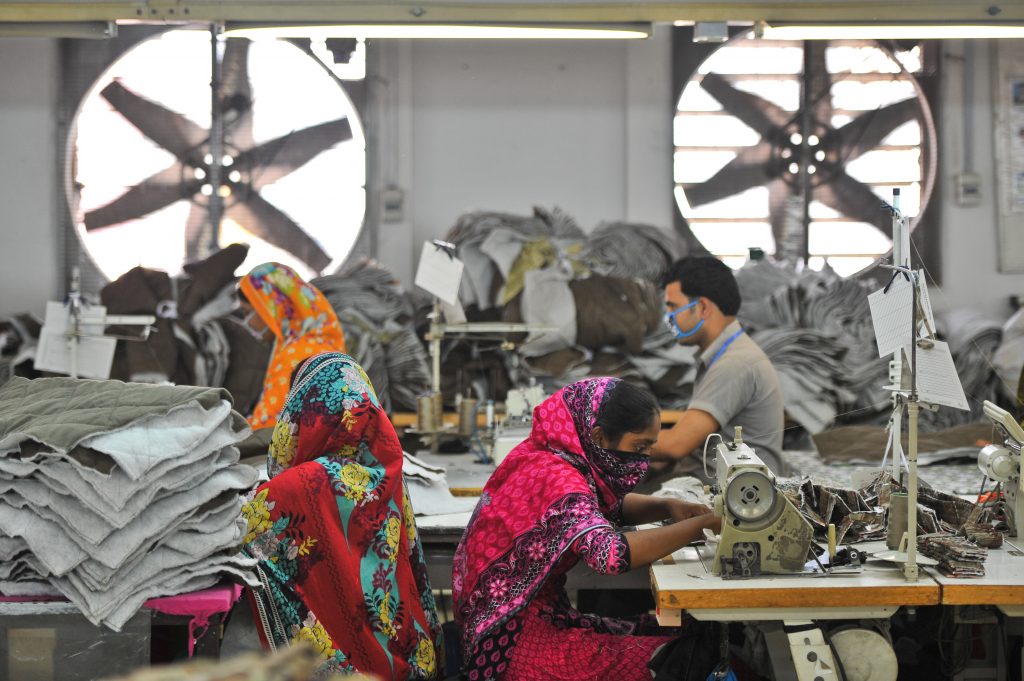In Bangladesh in particular, the health situation is alarming. But in service to the textile companies, especially those exporting the best fabrics and garments to Europe and North America, Prime Minister Sheikh Hasina ordered the reopening of thousands of textile companies.
Between July 23 and August 2, the authorities had decreed the closure of these companies, although the major brands were exempted. On August 3, due to the reopening, hundreds of thousands of workers flocked to Dhaka, the capital, from their homes in the outskirts and even from remote villages. On foot in the monsoon rains, by train, bus, or ferry, textile workers had to make their way to their workplaces.
When the closure was decreed, they had to leave quickly to be able to reach their places of residence and not be left in Dhaka far from their homes and families. Now they had to take the opposite route as best as they could, because the government ordered this measure, which only serves to meet the demands of the employers, without implementing any policies at all to protect the workers.
Caption: The green color indicates the increase in Delta variant infections in Bangladesh during the month of July. Source: covariants.org
In the meantime, the number of infections of the Delta variant continues to grow. As of August 2, 15,776 new cases have been recorded.
After the reopening of the factories, it is very likely that the number of cases will increase considerably, given the circulation of the Delta variant.
The Guardian published testimonies of some workers who had to move to Bangladesh because of the new reopening of the factories. Mohammad Masum, 25, said he left his village before dawn, walked more than 20 miles and took rickshaws (i.e., bicycle cabs) to reach the ferry port. “The police stopped us at many checkpoints and the ferry was full,” Jubayer Ahmad, another textile worker, said, “It was a mad rush to get home when the lockdown was imposed and now we are having trouble getting back to work.”
The government only listened to the employers who had been demanding the immediate reopening, such as the Bangladesh Knitwear Manufacturers and Exporters Association. Their vice-president, Mohammad Hatem, stated that they ran the risk that “European brands would divert orders to other countries,” with the consequent threat of workers’ layoffs.
Originally published in La Izquierda Diario on August 4, 2021
Translated by K.S. Mehta










